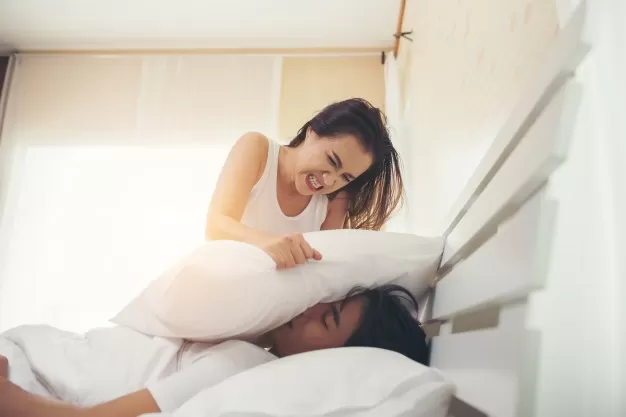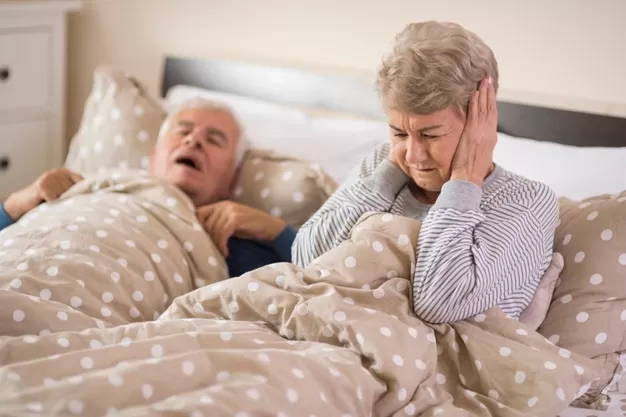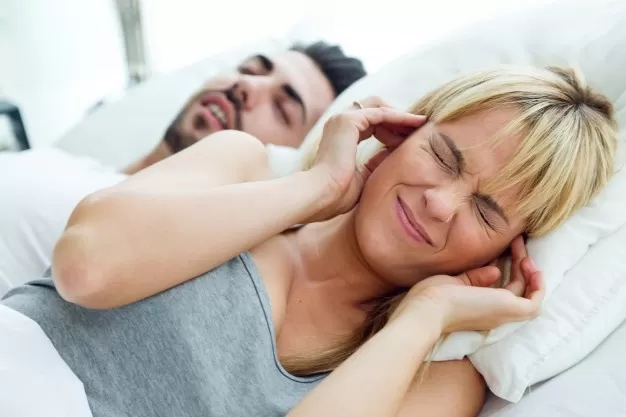Many sleep-deprived people may not know that a specific sleep condition is causing their tiredness. One common disorder is sleep apnea which occurs when your airways are obstructed while you sleep. You can learn more about the causes of this problem and some valuable tips for treating it by checking out the advice presented below.
If a person is severely overweight, they are much more likely to develop sleep apnea. The obvious solution is to lose the excess weight. A logical weight loss program that includes a restrictive yet healthy diet and a sensible exercise routine is necessary. Research has proven that reducing the number of carbohydrates one consumes throughout the day helps people lose weight.
To help with your sleep apnea, you need to consult with your doctor about the best CPAP machine. The machine size and how loud it is are things you should think about. Quality CPAP machines are nearly noise-free and easily fit on a bedside table. Your doctor should be able to point you in the right direction of a capable machine.
Consider elevating the head of your bed if you suffer from sleep apnea. As you sleep, gravity constantly pulls on your muscles and causes your airway to close. If you elevate the head of your bed a bit, the slight incline makes it easier for your body to maintain your airway when you are sleeping.
Start sleeping on your side. When you sleep on your back and have sleep apnea, your airway gets blocked by your tongue and throat tissues. To avoid rolling onto your back once you are asleep, try sleeping with pillows cushioning your side. This helps prevent you from turning onto your back.
Do your best to sleep off your back and on your side. Sleep apnea sufferers tend to sleep on their back. When you sleep on your back, it can cause your throat and mouth tissues to impede your airways. You will breathe more manageable if you sleep on your side. Support yourself with pillows so that you won’t end up on your back at night.
If you’re not finding that anything is helping with your sleep apnea condition, talking to a doctor about various treatment options is recommended. Some people cannot tolerate traditional alleviating sleep apnea symptoms, leading to the need for surgical intervention to enhance their airways.
Make a sleep schedule and keep to it. By sleeping at regular intervals and times, your body gets used to a pattern and takes advantage of it. If you are not getting quality sleep regularly, your sleep apnea may worsen. Make sure to go to bed at a similar time every day and try to sleep a fixed amount of hours.
Doctors often recommend that sleep apnea patients consider treatment with a CPAP – Continuous Positive Airway Protection – mask and machine. The machine sends air through a hose to a mask covering your nose. The purpose is to help keep your airway open, breathing normally as you sleep. While the machine may initially seem a bit foreign and uncomfortable, many patients adapt quickly and find they are getting much more restful sleep as a result.
A great way to ensure that you do not sleep on your back and cause sleep apnea is to use a tennis ball to prevent rolling onto your back. You can place one on a pillow behind your back, and when you roll over in your sleep, the tennis ball will make you roll back on your side.
There are some excellent tongue exercises you can do to help lessen the effects of sleep apnea. Press your tongue against your mouth’s bony palate and keep it there for at least three minutes. You will make your muscles more robust and have better results with your other treatments.
Spending time exercising your throat muscles may significantly increase the complications of sleep apnea. Sleep apnea results from breathing obstruction due to the soft tissues in your throat collapsing. As your muscles strengthen, their possibility of collapsing and blocking your airways is lowered.
Keep your throat, and head elevated while you sleep. If you suffer from sleep apnea, your airways are blocked while you sleep. So, keeping your throat and head in an elevated position helps keep your airways open. This can translate into a better night of sleep with reduced sleep apnea symptoms.
If you suspect sleep apnea, ask your sleep partner to listen to your breathing while you sleep. See if they detect loud snoring as you get deeper into sleep. In addition, ask if they notice any periods when you appear to stop breathing for a time and then suddenly let out a loud snort and start breathing again. If you sleep alone, consider tape recording yourself to listen for these breathing abnormalities.
If you consume alcohol or smoke, your sleep apnea symptoms could be the underlying cause of your sleep apnea symptoms. Meanwhile, smoking causes the swelling of the airways; alcohol does the complete opposite and relaxes them too much. Limit or quit smoking and drinking if you want to sleep well each night.
Frequently a simple humidifier can help with the dryness and irritation caused by using a CPAP machine when treating your sleep apnea. With the constant airflow, many people suffer from dry skin and irritation from using the CPAP machine. A humidifier or special facial moisturizers can help to ease these symptoms.
Learn to recognize sleep apnea. If you snore a lot or choke and can’t breathe during the night, this is probably a sign of sleep apnea. Use a tape-recorded if you sleep alone and listen to the tape to determine how much noise you make during the night.
Figure out all of your options once you find out you have sleep apnea. You want to figure out how to get more sleep every night. Good sleep is a foundation of overall good health. Use the tips you learned from this article to control your sleep apnea.




